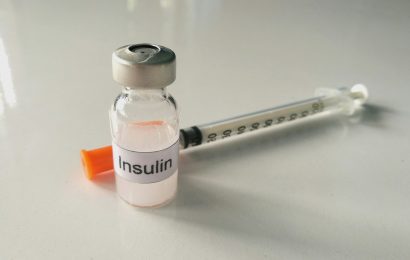Can you believe that a single food additive was responsible for 75% of all reports of adverse reactions to substances in the food supply from 1981 to 1995? Can you guess which food it was? Hint: It’s something that people with diabetes are often encouraged to consume.
According to former Food and Drug Administration (FDA) Epidemiology Branch Chief Thomas Wilcox, it’s the artificial sweetener aspartame. A total of 92 different symptoms and health conditions were reported by physicians and consumers of aspartame in this time frame.
People have made claims associating aspartame with everything from cancer to depression. Although some studies have found no cancer link, some of the psychological illness effects found have been quite dramatic. Arthritis, diabetes, kidney disease, and hypertension are among the serious medical conditions that have been potentially linked with aspartame. The FDA, American Medical Association (AMA), and American Dietetic Association (ADA) say it’s safe. From the research I’ve seen, though, I don’t want it in my body or yours. I think that the FDA, AMA, and ADA are all a bit too influenced by corporations to be completely trusted.
What is aspartame?
Aspartame is an artificial sweetener 600 times sweeter than sugar. It is made from two amino acids, aspartic acid and phenylalanine. In the body, some of it breaks down into methanol, which is further digested into formaldehyde. The government does not consider either of these dangerous in small amounts.
Aspartame is everywhere. It’s sold packaged as NutraSweet and Equal, among other names. It’s also added to almost any low-calorie or diet product. Most sugar-free jams and marmalades contain aspartame, as do many “light” sweetened products like yogurts and cereals. Cakes, chewing gum, ice cream, toothpaste, mouthwashes, popsicles, lip balm, lemonade, and many liquid medications do, too. Diet sodas are probably the biggest source for most people.
Why it’s controversial
H.J. Roberts, M.D., F.A.C.P., F.C.C.P., writing on mercola.com, says, “aspartame can have multiple neurotoxic, metabolic, allergenic, fetal and carcinogenic effects…The existence of aspartame disease continues to be denied by the FDA and powerful corporate entities. Its magnitude, however, warrants removal of this chemical as an ‘imminent public health threat.'”
Some people consider critics like Dr. Roberts alarmists. All of big medicine and government say it’s safe. But from the beginning, it was approved under suspicious circumstances. When studies showed an increase in brain tumors in animals who had been fed aspartame, and an FDA task force found major mistakes in the safety research of manufacturer G.D. Searle & Company, the FDA refused to approve it. But in 1981, a new FDA commissioner, Arthur Hull Hayes, Jr., was appointed, and he legalized aspartame a year later.
Donald Rumsfeld was president and later CEO of Searle at the time. In November 1983, Hayes resigned and joined Searle’s public relations firm as a senior medical advisor. (This “revolving door” between industry and government has been documented for years. See “Revolving Doors” in this article at mercola.com.)
So maybe the reports of neurological disease, diabetes, cancers, and less serious problems such as headaches and gastrointestinal upsets are all due to something else. Maybe there are just a few highly sensitive people out there, and it’s fine for everyone else. But I don’t drink it anymore. I used to drink a lot of Diet Coke when I was an advice nurse at nights. I don’t know how much, if at all, this contributed to my multiple sclerosis, and I never will. But I wouldn’t want any of my friends on this blog or in my life to touch aspartame.
A documentary on aspartame called Sweet Misery can be viewed here if you have high-speed Internet.
Have you had any experiences with aspartame? We’d like to hear about them in the comments section below.




